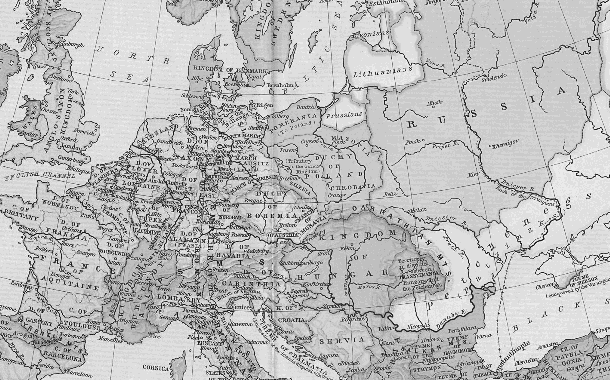<![CDATA[The 12th September marks the anniversary of a crucial event in European History. The ratification of the Franco-Russian Convention in 1912 played a key role in dividing the continent into two heavily armed and opposed alliances, helped push Europe to the precipice of a major conflict, and tells us a great deal about the intrigues of early twentieth century international relations. The Convention was a significant step in Europe's eventual split into the Triple Entente and the Triple Alliance, a key cause of the First World War. The Entente was comprised of Britain, France and Russia. The Alliance included Germany, Austria-Hungary and Italy. The nature of the agreements meant that a conflict between two countries from opposing alliances would oblige the other four to go to war as well. There are a multitude of other causes of the First World War, but from a purely practical stance, the alliance system laid the framework to facilitate the quick escalation of any continental conflict, as was proven in 1914. The assassination of Franz Ferdinand in Sarajevo led to a war between Serbia and Austria-Hungary. Russia became involved to protect Serbia (another of its allies). War was declared between Russia and Austria-Hungary and the other four powers joined in the conflict within a matter of weeks. The text of the Franco-Russian agreement describes it as being motivated by 'a common desire to preserve peace.' With hindsight this might seem a ridiculous idea. The clauses of the treaty stated that if Russia were attacked by Germany, France would mobilise 1,300,000 troops to attack Germany's West. If Germany attacked France, Russia would mobilise between 700,000 and 800,000 men to attack Germany's East. The reasoning seems to be similar to that of the later Mutually Assured Destruction (MAD) policy of the Cold War, dubiously relying on a mutual fear of a devastating conflict to prevent one. Relations between France and Russia had been getting closer since the end of the nineteenth century. The Tsarist government was keen to exert greater influence over the regions that had been controlled by the declining Ottoman Empire. This inevitably put it in competition with Austria-Hungary, already a German ally. France had substantial capital invested in Ottoman territories, and French politicians were anxious to secure these investments as Russia tried to increase its influence in the region. France hoped to use close ties with Russian to boost its own relative position in Europe. If Russia's interest in the Entente was strengthening its position against Austria-Hungary, the French were concerned about their western neighbour Germany. For much of the nineteenth century France had been one of the most influential powers in Western Europe. As that century came to a close though, German industrial expansion and increasing overseas imperialism was beginning to be viewed as a threat in France. In the wake of German unification, Bismarck had set about creating a series of alliances that would protect Germany from being surrounded by hostile states. This system had created a reasonable balance in Europe between the great powers, but the ratification of the dual alliance reveals just how far this balance had been upset. France had also agreed a naval pact with Great Britain, another means to counteract German expansion, and the precursor to Britain signing up to the Triple Entente. The Franco-Russian Convention was signed by French Prime minister Raymond Poincare. It provides an interesting insight into the increasingly complicated international relations amongst Europe's great powers, and the processes that ultimately resulted in the Great War. ]]>
Anniversary of the Franco-Russian Alliance
